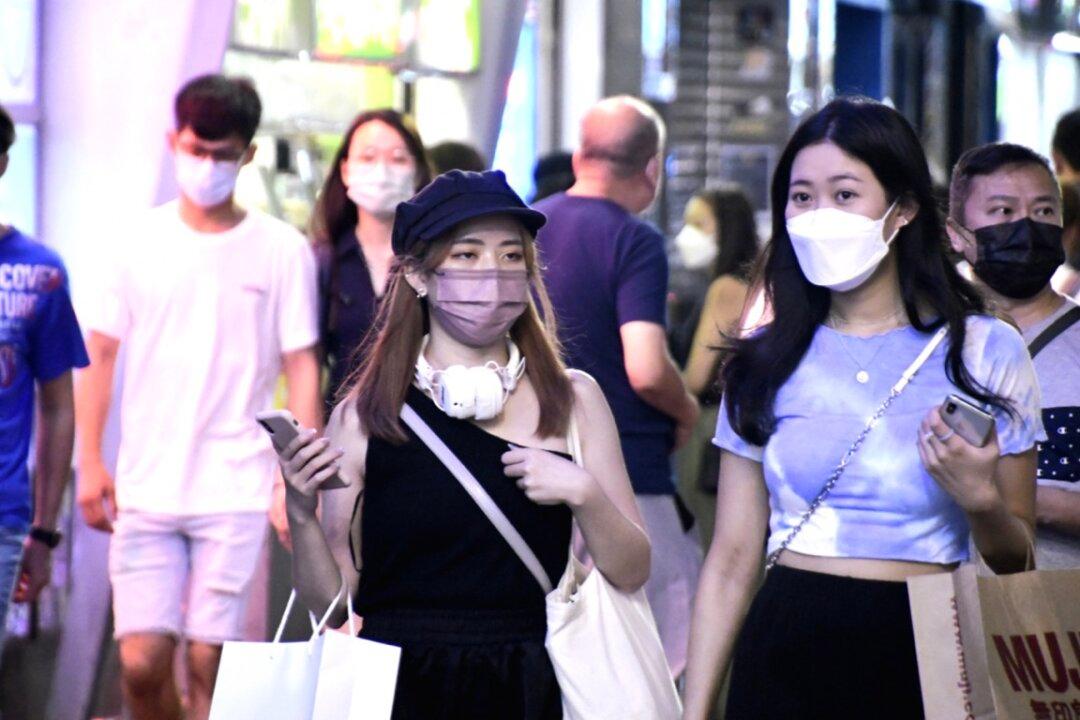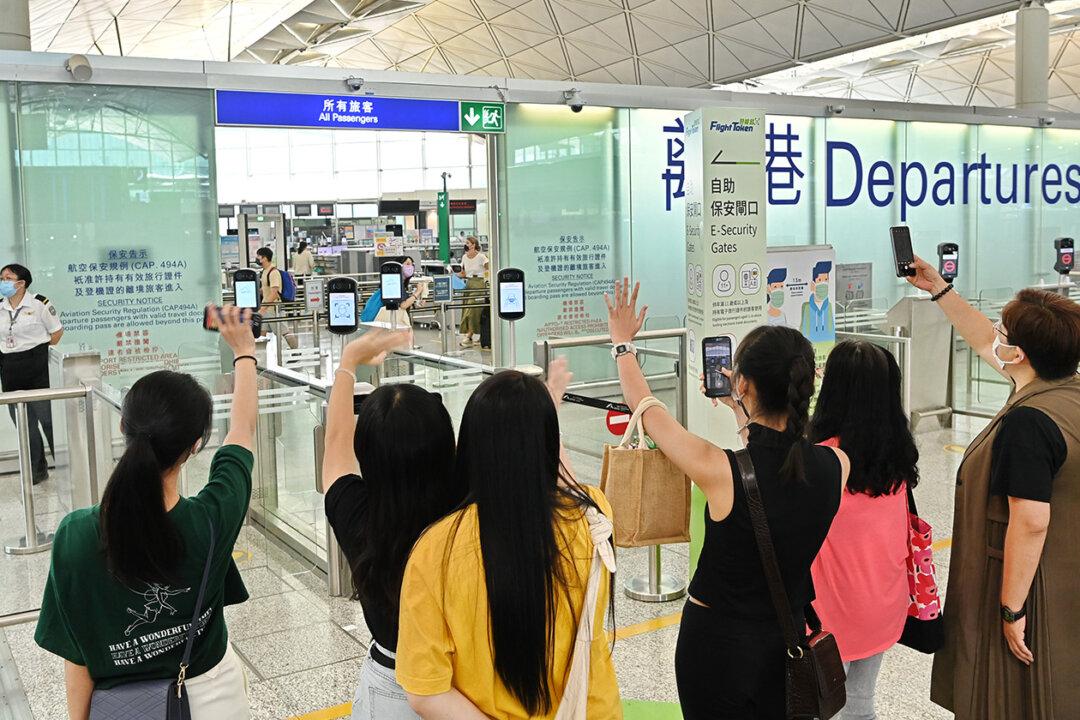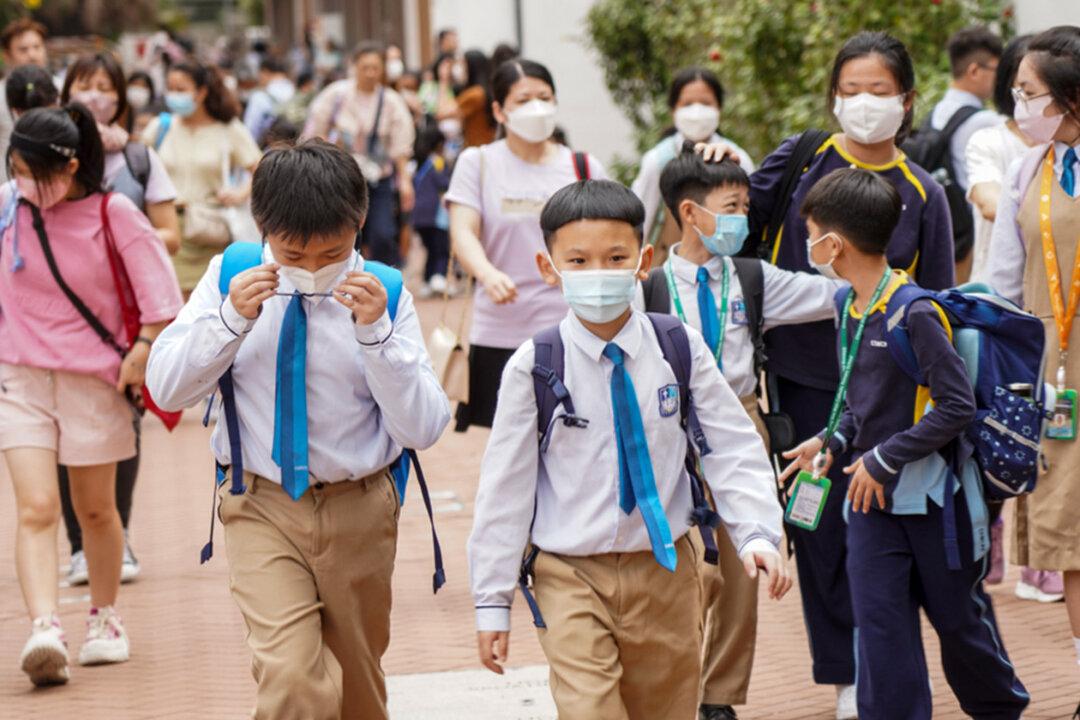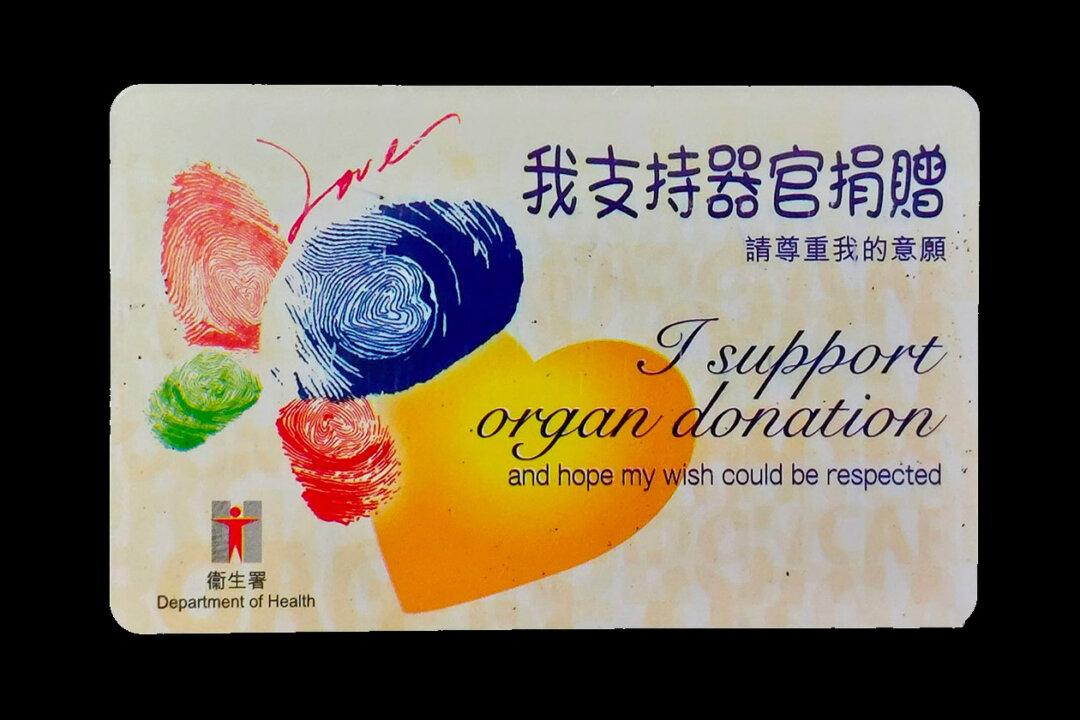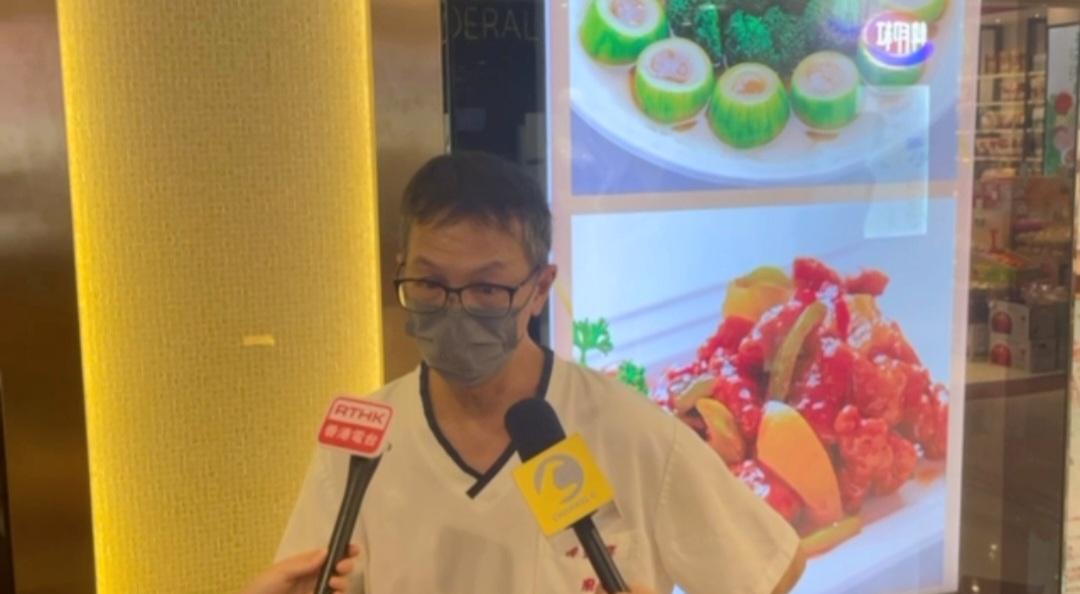A day after John Lee Ka-chiu, Chief Executive (CE) of Hong Kong, stated that the government would not cancel the COVID-19 vaccine pass and mask mandates, the Democratic Party published the results of a survey on citizens’ opinions.
The survey showed that over 75 percent of the public do not agree that the current epidemic is a “public health emergency.”
